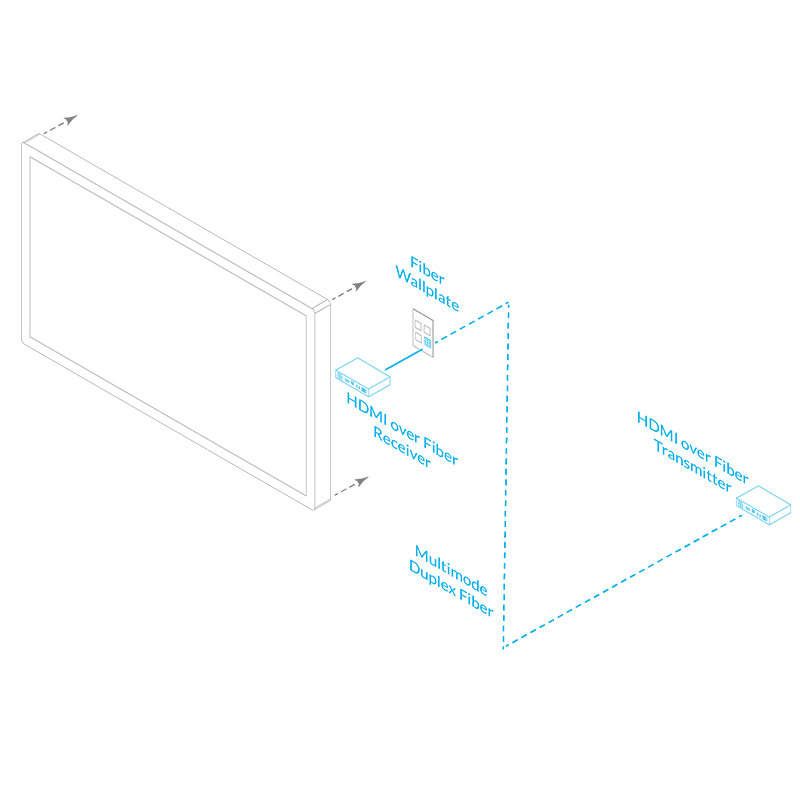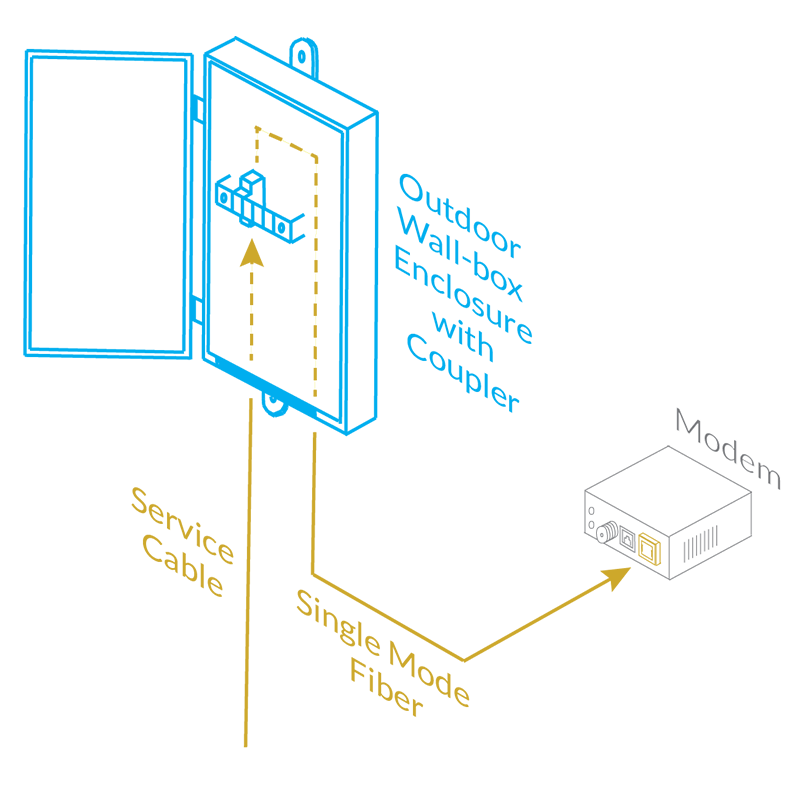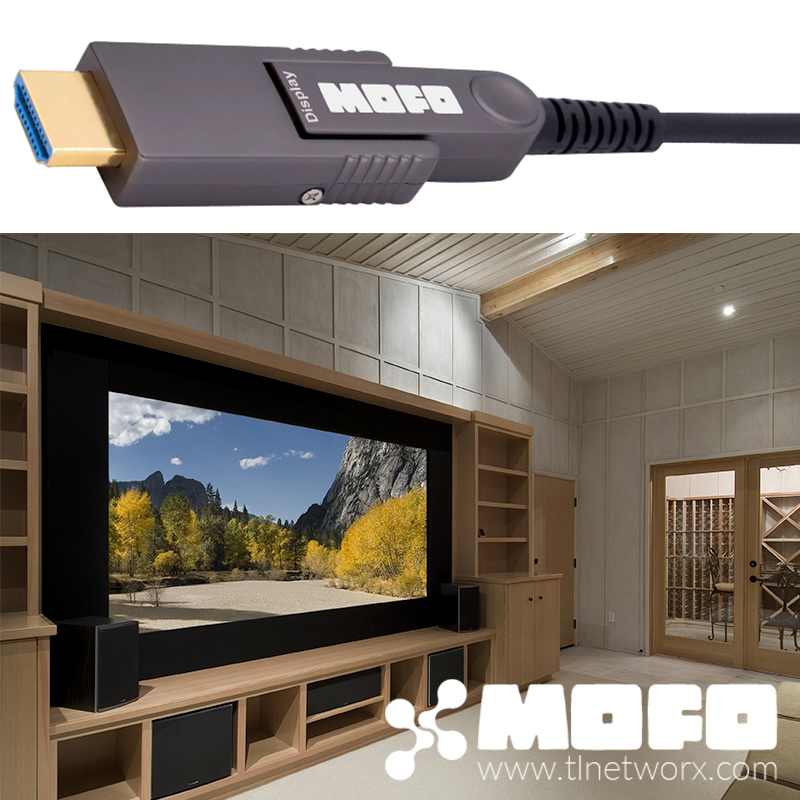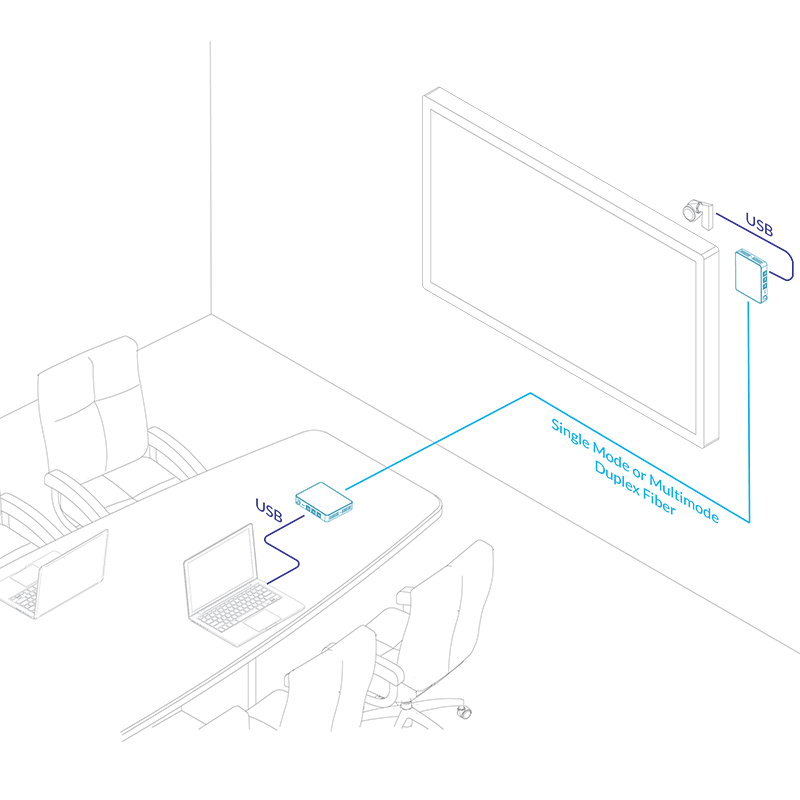Application Guide: Video Distribution using Fiber Optic Cable

Fiber optic cable is increasingly used to extend video signals such as HDMI, DVI and DisplayPort. Fiber supports the bandwidth required for native 4K HDR (up to 18G) and 8K (up to 48G), and it future-proofs for planned standards such as 12K and 16K.
- Immunity to RF and electrical (EM) interference
- Immunity to static electricity, surges and lightning strikes
- Increased signal transmission distances

Application Design Notes:
Ensure there is a source of power on both ends of the cable run. Video over fiber extenders require power, whether through an AC outlet or USB connection, and fiber optic cabling will not transmit power.
Always pull duplex (two strand) fiber optic cable. While some video over fiber extenders do support simplex (single strand) fiber transmission, this is not industry standard and two strands better future-proof the cable run for future integration.
Commonly Integrated Products:
 |
Video over Fiber Extenders Extenders transmit audio, video and control signals over fiber optic cabling. View |
 |
Keystone Wallplates Fiber optic keystone wallplate inserts provide a secure and aesthetic connection point between the main cable run and a shorter patch cord. View |
 |
Pre-Terminated Fiber Cable Premade fiber optic cables arrive pre-terminated with connectors and are available in stock and custom configurations. View |
 |
Bulk Fiber Cable Bulk fiber cable requires termination in the field and is available in stock and custom configurations, including with direct burial armor. View |
 |
Fiber Optic Connectors Fiber optic connectors terminate on bulk fiber cable. View |




Comments